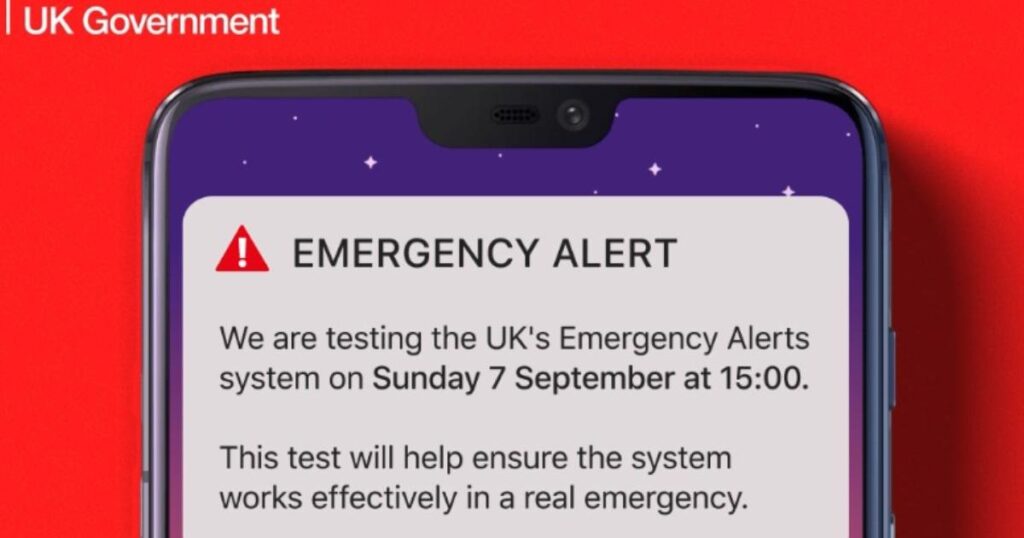Emergency Alerts is a UK government system that provides warnings and advice in the event of a life-threatening emergency.
The last test of the service took place on April 23, 2023.
The Government has also recently used the system for real, including in January during Storm Eowyn, to warn people in Scotland and Northern Ireland about severe weather.
But what exactly is it, and is there any need to worry?
Well, there are many reasons why you might receive an alert.
📢 The Government Emergency Alert system will be tested nationally 7th September 3pm.
The alert is a loud, siren-like sound from your mobile with a message on your phone screen. If you’re travelling with us, this is a test & no action is needed. pic.twitter.com/amtVwMlTOp— Southern (@SouthernRailUK) September 1, 2025
Reasons you might get an alert
You may get alerts about any type of life-threatening emergency, such as:
- wildfires
- severe flooding
- extreme storms
There are simple and effective steps you can take to be more prepared for an emergency in your area.
Emergency alerts will only be sent by:
- the emergency services
- government departments, agencies and public bodies that deal with emergencies
What you need to do
When you get an alert, stop what you’re doing and follow the instructions in the alert. It will last for 10 seconds.
Do not read or respond to an emergency alert while driving or riding.
Find somewhere safe and legal to stop before reading the message.
If there’s nowhere safe and legal to stop, and nobody else is in the vehicle to read the alert, you can listen to news on live radio to find out about the emergency.
SAVE THE DATE
On Sunday 7th September, we will be testing Emergency Alerts on mobile phones across the UK.
Find out more: https://t.co/ZFiC6vTApF pic.twitter.com/ET9vxWAQ43
— Cabinet Office (@cabinetofficeuk) September 1, 2025
How to prepare for an emergency:
- Find out if you are eligible to sign up to your gas, electricity and water supplier’s Priority Service Registers, so they know that you need additional support, including when there is an interruption to your supply. Ask anyone you provide care for if they are registered.
- Set a reminder in your phone or make a note on your calendar to check your smoke alarms at least once a month. You can involve children in the monthly test too.
- Write down important phone numbers on paper, such as the number to report a power cut (105) and the numbers of anyone you might want to contact in an emergency. Use their downloadable and printable household emergency plan to record this information in one document.
- Talk to your children about emergencies – teach them how and when to call 999 and what they should do if there’s an emergency, such as a fire at home.
- Check your long-term flood risk and sign up for flood and weather warnings.
Emergency alerts will be sent in English. In Wales, they may also be sent in Welsh.

If you cannot receive emergency alerts
If you do not have a compatible device, you’ll still be informed about an emergency. The emergency services have other ways to warn you when there is a threat to life.
It is worth noting, Emergency Alerts will not replace local news, radio, television or social media.




